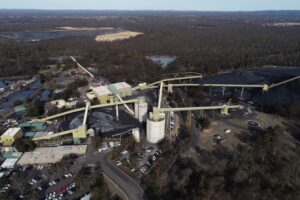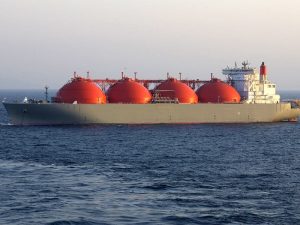Theresa May’s new government has finally made up its mind about the controversial new nuclear plant being financed by the French and the Chinese, which has faced sharp criticism for its escalating costs and for the implications of foreign ownership of critical UK infrastructure.

After turning its back on solar, it looks like the UK government has decided to put its energy eggs in the nuclear basket, with the decision to approve the development of two new nuclear reactors at Hinkley Point C. The Department of Business, Energy, and Industrial Strategy confirmed its approval on Thursday, while also taking the decision to change the legal framework for future energy projects, to limit foreign ownership.
The mega project, which will not be producing power until at least 2025, is going to cost a mind spinning £18 billion ($US23.8 billion) to complete, however it will be financed by French state utility EDF, and by the Chinese government. EDF is fronting £12 billion, while the Chinese are putting forward the additional £6 billion.
“After Hinkley, the British government will take a special share in all future nuclear new build projects,” said the government, on the defensive after the project faced criticism over its foreign ownership. “This will ensure that significant stakes cannot be sold without the Government’s knowledge or consent.”
“What we have done here in Hinkley is require that EDF, the principal operator guarantees – makes a commitment – that they won’t dispose of their stake without the government’s consent unless and until the plant is built,” added Energy Secretary Greg Clark.
The plant, which will be built in Somerset in the south-west of England, was given approval by EDF in July, who will sell the energy that is produced to the UK for £92.50 per MWh. It is the first new nuclear reactor to be built in the country in 20 years.
A project with baggage
The Hinkley Point C project, which was originally proposed in 2006, has become increasing controversial over the last ten years, in the face of escalating costs, extended deadlines, fears over the ownership of the project, as well as investment in nuclear to secure the country’s energy future. Most recently, there had been a pause in the government’s decision-making process upon the project, leading to hopes that alternatives might be being considered.
“This is what being painted into a corner feels like,” commented David Elmes, Head of Global Energy Research at Warwick Business School. “After a surprise delay by the new Prime Minister, Theresa May, the UK Government’s confirmation of the deal to build a new nuclear power station at Hinkley Point locks U.K. bill payers into an expensive source of energy for decades to come. The price UK bill payers are committing to through the government is now double and the start date has slipped at least 8 years.”
“This is a very expensive project,” Leonie Greene, head of external affairs for the Solar Trade Association told pv magazine. “It’s a great shame that there didn’t seem to be engagement during ‘the pause’ with modern alternative; namely smart power which the Government’s National Infrastructure Commission estimates could save consumers billions by 2030. We keep hearing from this government that cost to bill payers is a key concern, but they keep marginalizing the cheapest solutions.”
A costly decision to ignore solar PV
This sentiment was echoed in a recent study by the Renewable Energy Association (REA), which found that for the same projected costs to the UK public (£29.7 billion) over the course of the project’s lifetime, 23 GW of solar PV could be installed for half the price. However, instead of supporting solar PV, the government has recently slashed subsidies to the clean energy solution and changed its policy framework to the disadvantage of solar.
“What is extraordinary is that just as this extremely expensive project is being given the go-ahead solar power is facing unfair tax hikes that put solar and distributed power at a competitive disadvantage,” Greene continued. “If the U.K. wants to own the future it needs to back solar technology – there is a clear consensus amongst analysts and the energy sector that solar has a central, if not the biggest, role.”
And this trend does not just apply to solar, but to almost all renewable energies, making the government’s choice look all the more nonsensical. “Renewables such as solar, onshore wind and biomass are already cheaper than nuclear, are quicker to deploy, and have none of the construction or economic risk,” said Nina Skorupska, Chief Executive of REA. Our analysis shows that for nearly every renewable technology the equivalent amount of capacity could be procured at much lower cost using renewables.”
Source: PV Magazine. Reproduced with permission.










